- Home
- Troy Denning
Shadows of Reach: A Master Chief Story Page 33
Shadows of Reach: A Master Chief Story Read online
Page 33
Reaching the end of the aisle, he paused and seemed to stare across the intervening distance at Castor. It was an unusual thing to do, and Castor did not know what to make of it.
“Spread your hands to show they are empty,” ‘Gadogai said quietly. “Otherwise he will bring his weapon with the singular intent to use it. The war chief is as old as I am, and he is not one for petty games of intimidation.”
Castor had no idea how old ‘Gadogai was, but Sangheili lived far longer than Jiralhanae. That could make Escharum eighty or ninety years old—a remarkable age for such a legendary figure.
Castor spread his hands.
Escharum dipped his head, perhaps in thanks, then passed his gravity axe to the warrior on his right and started across the space between them. Castor went forward to meet him, ‘Gadogai falling in at his side. The blademaster’s energy sword still hung on his belt, but Escharum’s escorts seemed to take no notice of it—perhaps because they knew that it made no difference whether ‘Gadogai was armed. The Sangheili was either of no concern to Escharum because of their alliance, or just as deadly without need of a weapon.
Escharum crossed fully half the distance between him and Castor, a gracious gesture no doubt meant to put Castor at ease. Castor began to watch ‘Gadogai more closely, and when they reached Escharum, he stood at an angle so he could see them both.
Castor touched his fist to his breast.
“You honor the Keepers with your presence,” he said. “Had I known you were coming, I would have brought some prisoners for the proper welcoming games.”
Escharum brushed his fingers against his own breast, acknowledging Castor’s salute without returning its honor. He had a weathered face with flaring nostrils, a heavy jaw, and a long gray beard hanging from his chin. His right eye was cloudy and white, the result of an injury that had left a deep scar descending from his right brow to his hollow cheek. His left eye was as red as human blood.
“Had we been in contact,” Escharum said at last, “you would have known I was coming.”
“You had no trouble finding us.” Castor shot a glance in ‘Gadogai’s direction. “I understand the blademaster has kept you informed of our efforts.”
“And of your lack of results,” Escharum said. “It may be time to give up waiting and return to more conventional methods, Dokab Castor.”
“We are already employing conventional methods, War Chief,” Castor replied. “We have two thousand Keepers and three hundred craft searching every hole under every mountain in the entire chain. We have aerial images of the mountain range as well. It is one of the largest on Reach. If the portal truly is hidden under a mountain on this world, it would be here.”
“Yet you have found nothing.”
Castor could not tell if Escharum said this out of frustration with the Keepers, or with the situation in general. The war chief’s intimidating visage, so weathered by decades of battle, made him nearly impossible to read.
“That is not entirely true, Great One,” ‘Gadogai said, much to Castor’s surprise. He had not expected the cynical blademaster to speak in his defense—or to address Escharum with such a fawning honorific. “We found elderly humans and children hiding in some mining tunnels to the north. Thousands of them.”
“Elderly humans and children?” Escharum looked to Castor, who was just as mystified. “I fail to understand the significance.”
“As do I,” Castor said, looking to ‘Gadogai. “We found them, but they have nothing to do with the portal.”
‘Gadogai spread his hands. “I did not say they did. Only that we found them.”
“And what did you do with them?” Escharum asked.
“Nothing,” Castor said. “Slaying them would have meant pulling hundreds of Keepers off the search, and guarding them would require even more.”
“So you just left them where they were?”
“We destroyed their communications devices first,” Castor said. “Of course, we also searched their tunnels, to make sure the portal was not there.”
“And we took some of their males to use as guides,” ‘Gadogai added. “But they have not been much use. Most do not know the mountains any better than we do, and they are so old that they tend to collapse as soon as we make them start climbing.”
Escharum glared at ‘Gadogai. “What difference does this make, Blademaster? Explain yourself.”
“Certainly, War Chief,” ‘Gadogai said, as though his statement should have been plain to all. “It is quite simple. These humans belong to the same tribe as the ones who have been harassing the Legion of the Corpse-Moon and the Ravaged Tusks. The dokab’s thinking was that if the demon Spartans failed to lead him to the portal, he would take this group of frail humans captive and use them as hostages to force the rest to leave this world. Then Deukalion and Ballas would no longer be compelled to devote their efforts to securing Reach, and they would be free to join Castor in the search for the portal.”
Castor was stunned. Not only had ‘Gadogai posed a logical rationale for the Keepers’ reluctance to slaughter the helpless humans, he had also provided a fallback plan that was strategically brilliant and accurately pointed out the failure of the other chieftains to participate in the search for the portal. And the Sangheili had done this at the risk of his own favor in the eyes of Escharum and the Banished—and that was the most surprising thing of all to Castor.
Escharum looked back to Castor. “Very well. We have run out of time, Dokab.” He raised his hand eastward. “I will summon the others. Lead us to these humans and we shall end this now. Atriox has waited far too long to return.”
“To return?” Castor asked. “I thought we were going to him. On the Ark.”
“You doubt me, Dokab?” Escharum demanded. “Did I not say that Atriox would come to us and provide transport to his location…” He let his sentence trail off, then raised his hand and pointed eastward. “What is that?”
Castor turned to look and saw the tiny dart shapes of well over twenty UNSC fighter craft, racing in from the direction of New Mohács. They were not approaching Figyelő Point directly, but angling across Arany Basin toward the southwest portion of the Highland Mountains.
“That, War Chief, is what we have been waiting for,” Castor said. “The enemy is heading into the mountains.”
Without bothering to excuse himself or explain further, Castor raced to the sensor shelter. Inside the dimly lit room, he found a trio of Kig-Yar operators squawking at their Sangheili supervisor, all pointing at the holographic display in the center of the room.
The supervisor turned toward Castor. “There is no need for concern, Dokab,” he said. “They are not coming toward—”
“I could see that from outside.” Castor pushed him aside, then stepped up to the holograph. Roughly a meter in length, it showed an image of almost the entire Highland Mountain range. He saw twenty-four identical arrow symbols swarming around a single box symbol, their pace increasing as they moved toward the mountains. “What am I looking at?”
“Two talons of human utility fighters,” a Kig-Yar operator answered. “Escorting one of their…”
Heavy footfalls sounded at the door behind Castor, and the Kig-Yar fell silent as ‘Gadogai and Escharum entered. No doubt, they did not expect to see the Banished war chief himself in their monitoring shelter.
“One of their what?” Castor demanded.
The Kig-Yar looked back to his screen. “Apologies, Dokab. One of their dropships.”
“And this dropship?” Escharum asked. “It is large enough to carry digging machines?”
“Small ones, yes.”
Castor was already running his eyes along the flight’s course. “Show me the terrain along the projected flight path,” he said. “From the time it crosses over the mountains until it leaves.”
The Kig-Yar ran his fingers through a few light bars and pressed a couple of pressure pads on the emitter base. An image of a dotted line crossing over some very rugged mountain terrain appeared in t
he projection, and Castor knew as soon as he saw it where the dropship was headed. He faced the Sangheili post commander.
“Send everything we have after that human vessel. Shoot it down now!”
“What?” the post commander gasped. “Is this not what you have been waiting for, Dokab? For the demons to lead us to the portal?”
“They just did,” Castor said. He pointed to where the projected flight path crossed a flat circle surrounded by a ring of high craggy peaks. “We need no further confirmation. The reason we have not found it until now is clear. The portal was not under a mountain. Not at all.”
“What do you mean by this, Dokab?” Escharum’s tone had grown less menacing—perhaps even respectful. “Show me.”
“What I mean, War Chief, is that the portal is there.” Castor pushed his finger into the holograph, placing it atop the flat circle. “Under the Missing Mountain.”
CHAPTER EIGHTEEN
0932 hours, October 12, 2559 (military calendar)
Végtelen Mászás, Dél Eléri
Arany Basin, Continent Eposz, Planet Reach
Six days into Operation: WOLFE and Blue Team was right back where it had started, strapped into a dropship troop bay on the way to CASTLE Base, crossing Arany Basin with a horde of enemy fighters vectoring in to kill them. John was monitoring the tactical situation in his HUD, while Linda floated in inner stillness and Kelly rocked her helmet to some ancient classic music about biting dust.
They even had Stella Mukai in the jump seat again, warily eyeing Fred as he polished a nick out of his combat knife. But she hadn’t told him to put it away, apparently deciding his quick reflexes were reason enough to ignore the prohibition against unsecured equipment inside the bay. At least that was different, Mukai playing nice.
She had to be pretty worried.
Van Houte’s voice sounded over TEAMCOM. “Visual or tactical situation monitor?”
Van Houte was riding in the gunner’s chair today so his hotshot lieutenant could do the flying. Chapov clearly had the skills, and now that he had settled into his place on the team, everyone trusted him to listen to Van Houte’s experience.
“Visual,” John said. “Thanks.”
A tactical display would present only the air battle, which wouldn’t do Blue Team much good, as they were just along for the ride. But a visual image would show the terrain ahead, and that would prove very useful if they were forced down.
A moment later, the view from the nose camera appeared on the situation monitor above Mukai’s head. There were twenty-four Broadswords scattered across the screen, all brightly marked by paired circles of blue propellant pouring from the nozzles of their main engines. Beyond the strike fighters rose the brown wall of the Highland Mountains’ highest peaks, their jagged summits hidden within a charcoal pall of rain clouds.
The Highland Mountains were one of the few areas on Reach to escape the Covenant plasma bombardment. But it would have been wrong to say the range had been spared. A firestorm of apocalyptic proportions had swept up from the molten plains, consuming everything combustible… and melting so much that wasn’t. The verdant slopes had been reduced to banks of seared dirt and charred stone, the once-lush meadows blanketed in cinders and ash. In the months-long deluge of black rain that had followed, the mountainsides had been washed bare, and landslides the size of cities had tumbled into the valleys below. Now there were naked scarps of bright stone where there had been forests, and kilometer-deep bogs of mud and ash filling the dales. The only hints of recovery to be found were on the lower slopes, where a few streaks of barely noticeable green had begun to emerge between slide-scars.
The team’s destination was just visible in the middle of the situation monitor, a tangle of craggy ridges and plunging valleys that had formerly been the location of many of the UNSC’s sprawling military facilities on Reach, including the Reach Military Complex and the Military Wilderness Training Preserve. There the Spartan-IIs had learned not only to fight, survive, and thrive, but to nurture the bonds of loyalty and fellowship that had allowed them to endure so many decades of hardship and loss. John had returned here a handful of times since that devastating day seven years ago, but none of that seemed to blunt the anger he still felt for what had happened to this place, and to the ones who had lost their lives defending it.
Now, robbed of its forests—and even the soil those forests had grown in—the terrain looked more rugged and forbidding than when John and the rest of Blue Team had trained there. At its heart lay their current objective, a jagged ring of distant peaks with a tiny gap in the center—a gap that had been created during the war, when the Covenant literally removed the mountain over CASTLE Base.
The aliens had been trying to reach an ancient Forerunner installation that happened to be located deep under the base, but the UNSC had not realized that until Dr. Halsey was forced to take refuge there with Fred, Kelly, and several other Spartans. While they were searching for a way out, Halsey had discovered the item the Covenant was seeking—a slipspace-altering crystal that had some very strange effects on gravity, time, and space.
Shortly after Halsey’s find, John had led a rescue mission that almost literally plucked her and the others out of the Covenant’s hands. The enemy’s hunt for the crystal had quickly become an interstellar chase as they pursued the humans who now possessed it, but it had ended shortly afterward when the crystal was destroyed in an accidental explosion. As far as John knew, even Dr. Halsey had never figured out why the Covenant had been so desperate to have it.
But the war with the Covenant was long over, and Blue Team’s mission to recover the assets in CASTLE Base had nothing to do with the Forerunner installation—or the mysterious artifact Halsey had found inside it.
Tiny splinters of blue light began to spill out of the Highlands and out over the rolling glasslands at the base of the mountains, vectoring toward a convergence point directly ahead of the Pelican. John checked the synced information displays in his HUD and confirmed his suspicions. Banshees and Seraphs, ninety of them, with more entering detection range every second. About the only good thing he noticed was that the craft seemed to be arriving from every part of the range, rushing in from distant patrol circuits. Their pilots would be tired and slow.
“That doesn’t look like an ambush.” Fred looked toward John, his faceplate barely showing above the big stack of ordnance and recovery equipment secured to the deck between them. “Weren’t we expecting an ambush?”
“Maybe they’re going to try to force us down instead,” John said.
“Maybe.” Fred’s tone was doubtful. “But then they’d be trying to draw off our escort and get around behind us. That looks like a denial operation.”
Fred was right. The random vectors, the harried rush to converge on their position; none of that spoke of a planned ambush.
“Acknowledged,” John said. “Interesting.”
“Interesting how, precisely?” Kelly asked. “As in maybe the Keepers are willing to shoot us down in flames after all—that kind of interesting?”
“No, not that kind,” John replied. “They can’t risk destroying the bio-spoofers if we crash.”
“Not if we’re wrong in assuming they actually need the spoofers,” Kelly said. “What if they don’t?”
“They would need the spoofers if they’re after the assets,” John said. Without the biometric gloves and contact lenses Dr. Halsey had prepared for them, it would be impossible to bypass the vault’s security system. “They can’t get into the vault without them.”
“Oh, they can get in,” Fred said. “You can get into anything with enough blamex.”
“I meant without blowing it,” John said. Manufactured from the same Subanese blamite crystals used in needler ammunition, blamex was one of the favorite high-explosives used by ex-Covenant and Banished forces. “Don’t forget about the self-destruct mechanism. We open the vault without the spoofers, and everything goes up. Us included.”
“What if that is the poi
nt of their operation?” Kelly asked.
John couldn’t quite see what she was driving at—but it was still troubling. “Go on.”
“The only thing we knew for sure was that the Keepers, one part of the Banished forces, were following us. We assumed the rest—that our mission was compromised, and that they are trying to reach CASTLE Base to recover the same assets we are. Given our lack of intel on them, it was the most prudent course of action.”
“It’s still the most prudent course,” John said. “Whether they’re after the assets or something else, we need to assume their priority is the assets. Given everything we don’t know about their objective here on Reach, it would jeopardize the mission to assume anything else.”
Linda emerged from her meditation, raising her helmet to look across the stack of cargo at John.
“This is true, as far as it goes,” she said. Then she pointed a finger at the situation monitor. “Until your prudent assumption leads to an imprudent expectation.”
John saw the implication. “If they aren’t trying to recover the assets, they don’t need our spoofers.”
“And if they don’t need our spoofers,” Fred said, “they don’t need us in one piece.”
“That is what I’ve begun to think,” Kelly said.
“Only one problem,” Fred said. “Why care about the assets at all, if they’re not trying to recover them?”
“You’ve read the same intelligence reports I have on the Keepers,” Kelly said. While John was stranded in space with Cortana, missing in action for nearly five years, the rest of Blue Team had joined up with a hotshot Ferret team to tangle with the Keepers across several missions. “You know how their dokab worshipped Intrepid Eye. She’s a Forerunner AI, so maybe he’s expanded his pantheon. Maybe he’s trying to stop us because now he venerates… you know.”
She pointed skyward, to indicate Cortana.
“Seems unlikely,” John said. “If that was the case, this mission would have been over the millisecond we touched the ground, because there would have been a Guardian here waiting for us. And if we’re going to question assumptions, let’s question them all. There’s no solid evidence that our mission was compromised by a security leak. Take that away, and what makes us think the Keepers even know about the assets?”

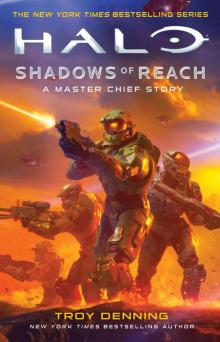 Shadows of Reach: A Master Chief Story
Shadows of Reach: A Master Chief Story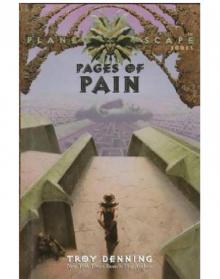 Pages of Pain p-1
Pages of Pain p-1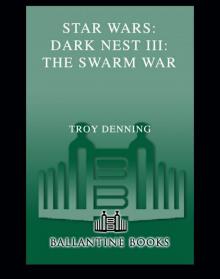 Star Wars 396 - The Dark Nest Trilogy III - The Swarm War
Star Wars 396 - The Dark Nest Trilogy III - The Swarm War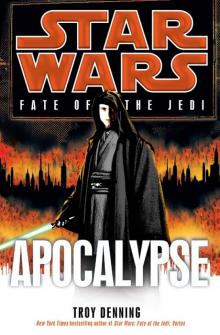 Star Wars: Fate of the Jedi: Apocalypse
Star Wars: Fate of the Jedi: Apocalypse A Forest Apart
A Forest Apart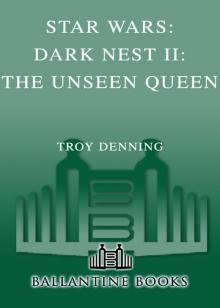 Star Wars: Dark Nest II: The Unseen Queen
Star Wars: Dark Nest II: The Unseen Queen Star Wars: A Forest Apart
Star Wars: A Forest Apart Tempest: Star Wars (Legacy of the Force) (Star Wars: Legacy of the Force)
Tempest: Star Wars (Legacy of the Force) (Star Wars: Legacy of the Force) Star by Star
Star by Star Crucible: Star Wars
Crucible: Star Wars Last Light
Last Light Invincible
Invincible Inferno
Inferno Star Wars - The Trouble With Squibs
Star Wars - The Trouble With Squibs Abyss
Abyss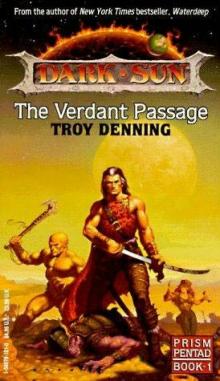 The Verdent Passage
The Verdent Passage Vortex: Star Wars (Fate of the Jedi) (Star Wars: Fate of the Jedi)
Vortex: Star Wars (Fate of the Jedi) (Star Wars: Fate of the Jedi)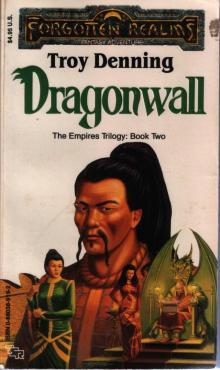 Dragonwall e-2
Dragonwall e-2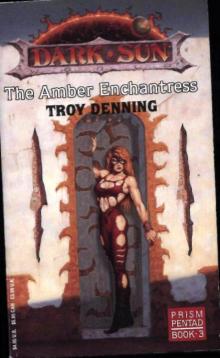 The Amber Enchantress
The Amber Enchantress Crucible
Crucible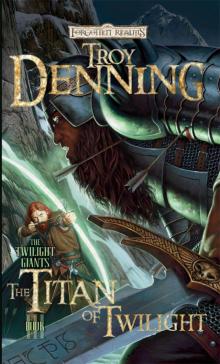 The Titan of Twilight
The Titan of Twilight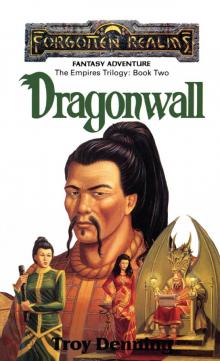 Dragonwall
Dragonwall Beyond the High Road c-2
Beyond the High Road c-2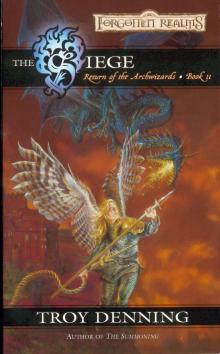 The Siege rota-2
The Siege rota-2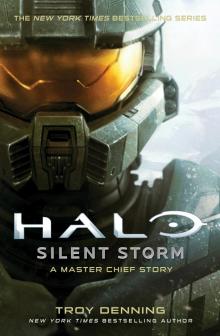 Silent Storm: A Master Chief Story
Silent Storm: A Master Chief Story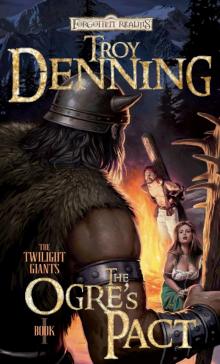 The Ogre's Pact
The Ogre's Pact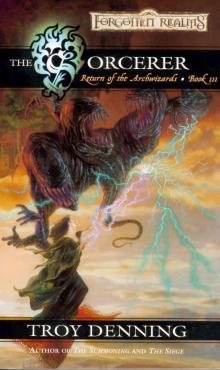 The Sorcerer rota-3
The Sorcerer rota-3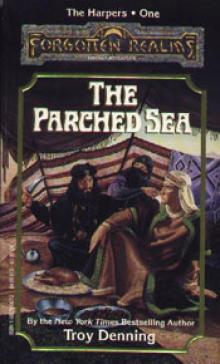 The Parched sea h-1
The Parched sea h-1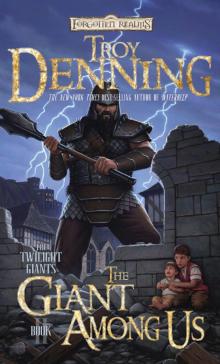 The Giant Among Us
The Giant Among Us Recovery
Recovery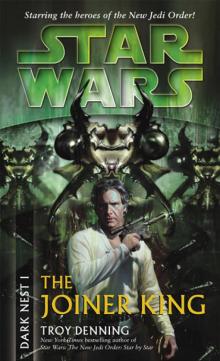 Star Wars: Dark Nest 1: The Joiner King
Star Wars: Dark Nest 1: The Joiner King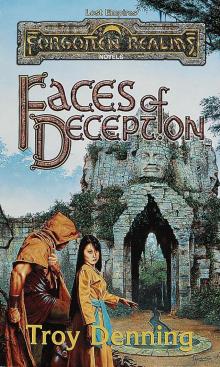 Faces of Deception le-2
Faces of Deception le-2 The Parched Sea
The Parched Sea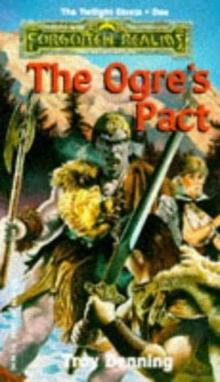 The Ogre's Pact зк-1
The Ogre's Pact зк-1 Apocalypse
Apocalypse Star Wars®: Dark Nest I: The Joiner King
Star Wars®: Dark Nest I: The Joiner King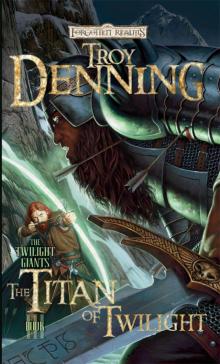 The Titan of Twilight ttg-3
The Titan of Twilight ttg-3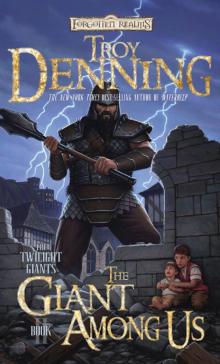 The Giant Among Us ttg-2
The Giant Among Us ttg-2 The Summoning rota-1
The Summoning rota-1 Tatooine Ghost
Tatooine Ghost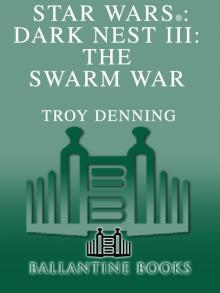 Star Wars®: Dark Nest III: The Swarm War
Star Wars®: Dark Nest III: The Swarm War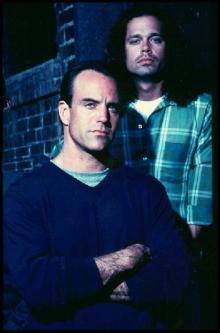 Retribution
Retribution A Forest Apart: Star Wars (Short Story)
A Forest Apart: Star Wars (Short Story)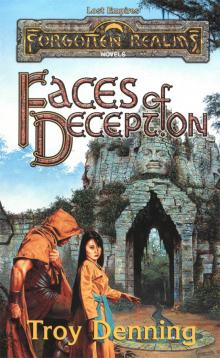 Faces of Deception
Faces of Deception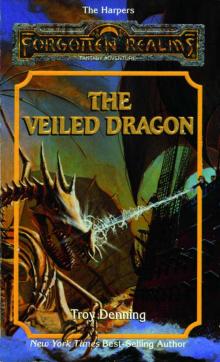 The Veiled Dragon h-12
The Veiled Dragon h-12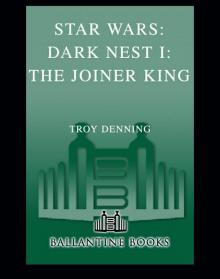 Star Wars 390 - The Dark Nest Trilogy I - The Joiner King
Star Wars 390 - The Dark Nest Trilogy I - The Joiner King Waterdeep
Waterdeep STAR WARS: NEW JEDI ORDER: RECOVERY
STAR WARS: NEW JEDI ORDER: RECOVERY